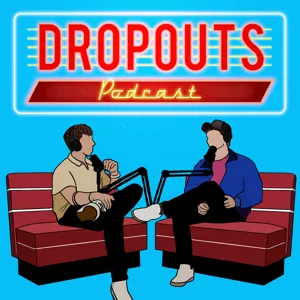Podcast Summary
The Revenge of Analog: Tangible Products' Resurgence: The digital age has sparked a renewed interest in tangible products due to their benefits for creativity, psychological well-being, and community, despite easier access through the internet.
Despite the digital shift and the prevalence of technology, there's been a resurgence of interest in analog products like vinyl records, hard copy books, and pen and paper. Author David Sax discusses this trend in his book, "The Revenge of the Analog." He explains that this isn't just a nostalgic fad, but a response to the benefits we get from tangible products, such as creativity, psychological well-being, and a sense of community. The internet, ironically, has played a role in this upsurge by making it easier to access and purchase these analog items. Sax observed this trend a decade ago, as people were streaming music and digital technology was supposed to have eradicated physical media. However, vinyl records and Moleskine notebooks started to make a comeback, and this trend has continued to grow as digital technology becomes more central to our lives.
Pursuit of balance and unique experiences: Younger generations seek counterweight to digital tech, value analog processes and benefits, and discover them through the internet
The resurgence of analog technology is not a rejection of digital advancements, but rather a pursuit of balance and different experiences for individuals. Contrary to popular belief, this trend is not driven primarily by nostalgia, but by younger generations who never experienced analog technology firsthand. People are seeking a counterweight to digital technology, which has become an obstruction for some, and are finding value in the unique processes and benefits that analog offers. The internet, ironically, plays a significant role in this revival, as it allows people to discover and access these analog products and communities. Overall, it's a sign of technological maturity, as people evaluate the strengths of both digital and analog and choose to incorporate both into their lives.
The resurgence of analog products in the digital age: Despite the digital age, consumers continue to seek tangible, authentic experiences. Crowdfunding and the internet have facilitated the growth of markets for niche analog products, leading to a resurgence in industries like vinyl records.
The digital age has revolutionized the production and consumption of analog products and services, particularly in niche markets. Crowdfunding platforms have made it easier for individuals to bring their ideas to life, while the internet has connected communities of users and facilitated the growth of markets for rare and specialized items. One notable example is the resurgence of vinyl records, which saw a significant decline in sales starting in the 1980s but have since experienced a massive comeback, with sales growing more than 13 times in the last decade. This growth has led to a resurgence in record pressing companies and the production of new turntables to meet the demand for physical records. The success of the "analog counter-revolution" demonstrates that consumers still value tangible, authentic experiences, and that technology can be used to enhance and revitalize traditional industries rather than replace them.
The emotional and cultural value of music drives the vinyl record market: People value the tactile experience, nostalgia, and deeper connection to music that vinyl records offer, leading to a billion-dollar industry and economic growth.
The resurgence of the vinyl record market is a testament to the emotional and cultural value people place on music, despite its inconvenience. With record stores and pressing plants popping up around the world, this billion-dollar industry provides jobs and economic activity. People are drawn to the tactile experience of buying and collecting records, which offers a sense of nostalgia and engagement that digital music lacks. While digital music offers convenience, the joy of discovering new music in a record store, forming connections with others, and the physicality of owning a record cannot be replicated. Ultimately, the vinyl record market thrives because it caters to our irrational, emotional desire for a deeper connection with music.
Analog experiences foster deeper connections: Physical objects create lasting bonds, provide a sense of permanence, and foster meaningful conversations and relationships.
Physical objects, such as records, books, and even analog devices like turntables, hold deeper meaning and foster more meaningful connections between people compared to their digital counterparts. The speaker emphasizes the tactile experience of interacting with these items and the conversations and relationships that can be formed around them. Physical objects provide a sense of permanence and personal expression that digital media cannot replicate. Additionally, lending or gifting physical items creates a lasting bond between individuals, unlike digital subscriptions or gift cards. These objects serve as reminders of the people who have shared them, creating a sense of nostalgia and appreciation. Overall, the speaker argues that while digital technology offers convenience and accessibility, it cannot replace the social and emotional connections formed through analog experiences.
The value of physical media goes beyond information: People continue to purchase physical media like books and records for the sensory experience and emotional attachment they provide, despite the convenience of digital media.
The value of physical media, such as records and books, goes beyond just the information they contain. People continue to purchase these items because of the sensory experience and emotional attachment they provide. Contrary to predictions, the decline of digital media like e-books and streaming services has not completely taken over traditional formats. The idea of owning a physical collection is a symbol of achievement and a deep-rooted connection to our past. Despite the convenience of digital media, the tangible nature of books and records remains desirable. This preference is evident in the resurgence of sales for hardcover books and vinyl records, as people continue to prioritize the sensory and emotional experiences they offer.
The Tactile Advantages of Physical Books: People prefer physical books due to their tactile advantages, sense of ownership, durability, uncluttered reading experience, and better information retention.
Despite the rise of digital media, physical books and other tangible forms of information continue to hold appeal due to their tactile advantages and the deep-rooted human desire to touch and use our senses. Books, in particular, offer a sense of ownership, durability, and a simple, uncluttered reading experience that resonates with us from childhood. The intangible nature of digital media, on the other hand, lacks the sensory feedback and physical connection that comes with holding a book or a vinyl record. Additionally, studies suggest that people retain information better when reading from a printed page. These factors contribute to the enduring appeal and resilience of physical media.
The appeal of tangible possessions: In the digital age, owning and controlling tangible items like paper and notebooks still holds value for their instantaneous, distraction-free nature, despite the convenience of digital tools.
Despite the advancements in technology, human nature and our preferences for tangible items remain. The speaker shares an experience of losing digital content when a company went bankrupt, emphasizing the importance of owning and having control over one's possessions. The speaker also highlights the enduring appeal of paper and tactile writing technology, such as notebooks, due to their instantaneous and distraction-free nature. Even in the tech industry, where digital tools are abundant, engineers and creatives still use paper for jotting down ideas. It's essential to strike a balance between digital and analog tools, as each has its unique advantages and disadvantages. While digital tools offer speed and convenience, paper provides a more focused and distraction-free environment for creativity.
Starting with imperfection and analog tools for more creativity: Embracing imperfection and using paper and pencil can lead to more original and unique ideas in various fields, including architecture, design, and technology.
Embracing imperfection and using analog tools like paper and pencil in the initial stages of ideation can lead to more creativity and innovation. This was discussed in the context of architecture, but it applies to various fields, including design and technology. The overreliance on computers and software can limit creativity and creativity by imposing standardization and rules. By starting with a blank paper, one can freely explore ideas without constraints, allowing for more original and unique solutions. This concept was illustrated through the experiences of an architect who missed the freehand drawing days before CAD and Google's chief designer of user experience and user interface, John Skijo, who introduced a hand-drawing course for Google employees.
Appreciating physical possessions for comfort and connection: Physical possessions provide a sense of grounding, identity, and connection to our personal history. Collecting can give us a sense of value and root us in our personal identity.
Physical possessions, whether they are awards, books, or collectibles, can provide a sense of grounding and identity in a world filled with uncertainty and change. According to David Sacks, author of "Revenge of the Analog," these items serve as security blankets, reminding us of our past experiences and helping us feel connected to our personal history. The act of collecting, whether it's beer cans, t-shirts, or sports memorabilia, can give us a sense of value and root us in our personal identity. Sacks argues against the idea that men must always be moving forward and disrupting the past, suggesting instead that we need to be rooted in our sense of self, and sometimes that rooting happens with physical things. So, whether it's a vinyl record, a favorite book, or a cherished keepsake, take a moment to appreciate the comfort and connection these items can bring.













